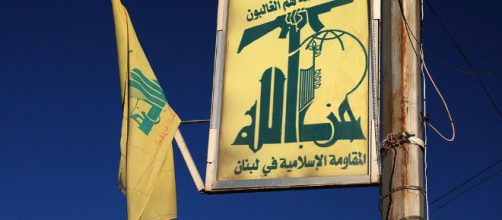Earlier today, the administration of President Donald Trump released a statement saying that it has issued new sanctions on individuals and companies linked to the Lebanese organization Hezbollah. These sanctions primarily focus on entities and people located in the Middle East And West Africa. According to officials within the Trump administration, the sanctions are designed to weaken the influence of Hezbollah, and by extension Iran, in Southwest Asia. So far, the U.S. Treasury Department has singled out the countries of Lebanon, Ghana, Sierra Leone, and Liberia.
The sanctions are designed to freeze the assets of any individual who does business with the seven companies and six individuals named in the new piece of legislation. In a prepared statement, U.S. Treasury Secretary Steve Mnuchin said that Hezbollah is "responsible for the deaths of hundreds of Americans." The group is also officially listed as a terrorist organization by the American government.
The news of these new sanctions comes at a dangerous time for U.S. foreign policy in the Middle East. Hezbollah's regional power has significantly increased ever since it sent its soldiers to the battlefields of Syria in order to bolster President Bashar al-Assad. Now flush with Iranian cash and Syrian and Russian weapons, many geopolitical analysts worry that Hezbollah could pose a serious military threat to Israel, its long-time arch-enemy.
Ongoing investigation
Many Washington observers claim that President Trump is trying to use these financial sanctions as a way to increase global pressure on the regime in Tehran, which is the largest supplier and backer of Hezbollah. According to Fox News, the Trump administration sees these sanctions as part of the "first wave" of decisions designed to further isolate and weaken the Iran-Hezbollah axis. Treasury Secretary Mnuchin further added that the Trump administration is "determined to expose and disrupt Hezbollah's networks, including those across the Middle East and West Africa, used to fund their illicit operations."
There may be some political football behind these new sanctions, as well.
For a long time, U.S. security officials have warned about the power of Hezbollah in Latin America, where they use on-the-ground supporters to launder money and work within the local drug economy in order to fund military and terrorist operations. When he was the commander in charge of the U.S. Southern Command, General John Kelly, the current White House Chief of Staff, warned Congress in 2015 that Hezbollah officials operated almost with impunity in certain South American countries.
At the time, according to The Hill, General Kelly dourly admitted that the United States lacked the resources and the intelligence capabilities to fully vet Hezbollah's activities south of the border. Also, Politico is currently running an investigative series on how the Obama administration deep six'd a federal investigation designed to fully expose Hezbollah's role in drug trafficking.
It is believed that Project Cassandra was cancelled in order to protect the Obama administration's nuclear deal with Iran.
Bad blood
The U.S. government believes that the Iranian government sends Hezbollah as much as $700 million a year. Thanks to this money, Hezbollah is one of the wealthiest and most powerful non-government actors in the Arabic-speaking world. The Trump administration, which heavily supports Israel, believes that Hezbollah seeks to use some of this money to target Israeli outposts near the Syrian border. Like the Syrian government, Hezbollah believes that the Golan Heights, which are currently occupied by Israel, rightfully belong to Syria.
Hezbollah first came to international attention during the Lebanese Civil War (1975-1990).
The group officially founded in 1985, just three years after the Israeli military invaded and occupied southern Lebanon in support of the Free Lebanon State. The group waged a bloody guerrilla war against the Israeli Defense Forces (IDF) that saw the use of suicide bombers and political assassinations. A court also found that the group played a role in the 1983 suicide bombing of the U.S. Embassy in Beirut, Lebanon that killed sixty-three U.S. military and government personnel.
Since then, the U.S. government has blamed Hezbollah for the bombing of the U.S. Embassy Annex in Beirut in 1984, the bombing of the Khobar Towers in 1996, and for deploying their members to Bosnia and Iraq as terrorists and trainers. The group has also been accused of trying to recruit Muslim fundamentalists all over the world in order to strike against U.S., European, and Israeli targets.


